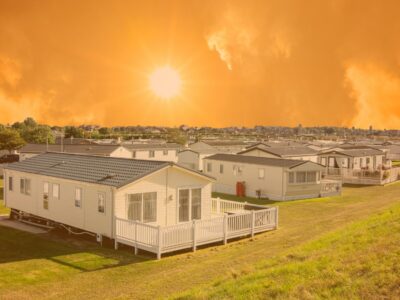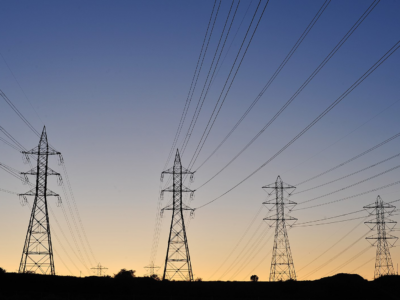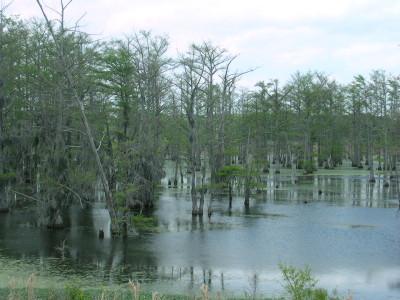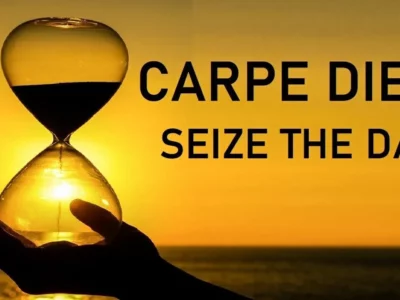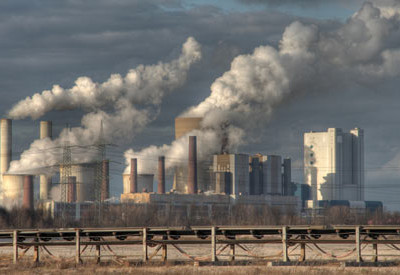California Seeks to Protect Homes from Excessive Indoor Heat
Guest contributor Cassandra Vo writes that the state should do more to protect mobile homes dwellers from heat. Work by a UCLA Law Clinic on behalf of Leadership Counsel for Justice and Accountability points the way forward on inclusive heat resiliency standards.
Guest contributor Cassandra Vo is a J.D. Candidate at UCLA Law ('25) specializing in environmental law. Hotter, deadlier, and more frequent heat waves have become one of the most surefire signs of a changing climate in our day-to-day lives. California recognized the need for action on this issue in 2022 by bringing to life AB 209, one section of which centers around creating better indoor heat safety in homes. That should include mobile home communities, which are...
CONTINUE READINGWestern States Should Opt In to Regionalized Electricity Markets
Guest contributor Kelly Cook writes that regionalization efforts present a low risk that federal control will threaten state authority.
In the West, the benefits of electricity market regionalization appear more attractive than ever. “Regionalization” refers to efforts to expand coordination between Western states to buy and sell wholesale electricity through centralized federal power markets. Increased coordination, made possible through regional transmission organizations (RTOs - independent non-profit organizations that operate the grid and oversee the operation of centralized energy markets),...
CONTINUE READINGTemporary Takings and the Adaptation Dilemma
Current law penalizes adaptation measures because of the risk of takings liability.
Is it unconstitutional for the government to build a levee that reduces the risk of urban flooding but diverts the water to nearby farmlands? The answer could be yes, unless the government pays for flood easements on the rural lands. But if the government doesn’t build the levee, it faces no liability from the urban landowners. That’s the adaptation dilemma: preparing for climate disaster is legally disfavored. The issue is created by a 2012 Supreme Court. Altho...
CONTINUE READINGJudicial Deference to Agencies: A Timeline
Decisions about judicial deference to agencies on legal issues didn’t begin or end with Chevron.
The Supreme Court is currently considering whether to overrule the Chevron doctrine. Chevron requires courts to defer to an agency’s reasonable interpretation of an ambiguous statute. We should know by the end of next month whether the current conservative super-majority on the Court will overrule Chevron. In the meantime, it’s illuminating to put the current dispute in the context of the last 80 years of judicial doctrine regarding deference to agencies on issu...
CONTINUE READINGHow the ICC is Using International Criminal Law to Prosecute Suspects of Eco Crimes
Guest contributor Aria Burdon Dasbach writes that the International Criminal Court is in the process of weighing dozens of suggestions for how to go after global environmental crimes.
There are many different ways that our global society has attempted to address environmental damage and climate change. We fund climate technology startups. We elect representatives that keep the climate in mind. We start nonprofits dedicated to reestablishing our collective sustainable relationships with earth systems. And we litigate in civil and federal courts at the national level when environmental rights have been violated. Yet the climate change clock continue...
CONTINUE READINGClimate Policy and the Audacity of Hope
The barriers are still huge — but we can also envision a path to success.
The bad news is that we’re not yet on track to avoid dangerous climate change. But there’s also good news: We've taken important steps that will ease further progress. We should resist the allure of easy optimism, given the scale of the challenges. Neither should we wallow in despair. There's a good basis for hope. To begin with, there’s been major progress in U.S. climate policy. The first half of Biden’s term saw the passage of three bills that collectivel...
CONTINUE READINGLGBTQ People Face Greater Climate Risks
A new study by the UCLA Williams Institute finds that LGBTQ people in same-sex couples are at greater risk of exposure to the harms of climate change compared to straight couples.
In August of 2005 when Hurricane Katrina made landfall in Louisiana and Mississippi, the combination of torrential rain and flawed infrastructure proved deadly. More than 1,800 people died and the price tag for the damage quickly rose to the tens of billions of dollars. In the chaotic disaster response that followed, several communities were disproportionately vulnerable to discrimination during recovery. Among them: LGBTQ residents. They were often overlooked in loc...
CONTINUE READINGWhy the New Climate Reg for Coal is a Perfectly Normal EPA Rule
EPA's approach isn't a novel innovation. It's just EPA applying its usual approach.
Is EPA's new climate rule a sneaky effort to eliminate coal or a valid pollution standard? Some new arguments made by EPA convince me that it's pursuing a time-tested approach to pollution control. It's not that EPA is trying to grind down the industry. It's that the economics of coal-fired plants are so fragile that a mild breeze would give them pneumonia. Opponents are sure to legally challenge EPA's new rule to limit carbon emissions from coal-fired power p...
CONTINUE READINGEPA’s New Power Plant Rules Have Dropped. What Happens Next?
Media battles. Lawsuits. Stay requests. And political mayhem.
EPA has just issued a cluster of new rules designed to limit carbon emissions from power generators. Once upon a time, the presumption would have been that the rules would quietly go into effect, until someday a court rules on their validity. These days, we can expect a lot of action to be begin almost right away. First, we are likely to lawsuits filed before opponents have even had a chance to read the new rules. Opponents see the new rules as vulnerable because th...
CONTINUE READINGWe Need a True Debate Over Income-Graduated Fixed Charges
A state bill to cap the fixed charges utilities can collect in California would shut down an important debate about equity and rate design. Here’s a better way forward.
Electricity rate design is unavoidably technical. It also has huge implications for equity, climate change, and ensuring a grid that works. Rate design can be used to promote many different goals, from efficiency to bill stability, but it always entails distributive decisions. Rate design determines how we distribute the costs not just of electricity, but of the shared system that provides that electricity. And though electricity rate design rarely grabs head...
CONTINUE READING




